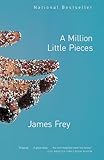That sound you hear is a thousand book publicists wailing. Oprah Winfrey will announce today that her eponymous talk show will end in September 2011. That means that in less than two years, the ultimate book publicity coup will be off the table.
Oprah’s Book Club isn’t quite the powerhouse it once was. The club was started in 1996, a savvy move when neighborhood book clubs were in vogue with the Oprah demographic. The Book Club also was a way of distancing the show from its increasingly shock-oriented daytime peers (a format, we may forget, that Oprah once partook of.) In those early years of the Book Club, Oprah would often, though not always, chose a little-known, “mid-list” book that would become an overnight bestseller. In a literary world where writers are playing the lottery against the longest of odds, Oprah was the winning ticket.

 The Club earned a reputation, perhaps unfair to the Club and perhaps unfair to the books that were a part of it, as a redoubt of “women’s fiction,” but the selections were more varied than that, ranging from melodrama like Anita Shreve’s The Pilot’s Wife and Wally Lamb’s She’s Come Undone to more nuanced fare like Ernest J. Gaines’ A Lesson Before Dying and Breath, Eyes, Memory by Edwidge Danticat. The Club went on like this for about five years, selecting 10 or 12 books a year, and, with a flick of this magic wand, turning each one into a bestseller.
The Club earned a reputation, perhaps unfair to the Club and perhaps unfair to the books that were a part of it, as a redoubt of “women’s fiction,” but the selections were more varied than that, ranging from melodrama like Anita Shreve’s The Pilot’s Wife and Wally Lamb’s She’s Come Undone to more nuanced fare like Ernest J. Gaines’ A Lesson Before Dying and Breath, Eyes, Memory by Edwidge Danticat. The Club went on like this for about five years, selecting 10 or 12 books a year, and, with a flick of this magic wand, turning each one into a bestseller.
And then Jonathan Franzen came along. You can argue whether Franzen should have accepted Oprah’s selection as just another of many honors bestowed upon The Corrections or whether he had every right to exert some well-earned control over how his book was marketed, but one thing seems clear. Oprah had never contemplated the idea of someone turning her down.
After Franzen, the Book Club, as if trying to find its purpose again, meandered, initially with some fanfare, but increasing as an afterthought, through classics by Garcia Marquez, Tolstoy and others. The books still sold but she was only making a couple of selections a year, and some of the dazzle had leaked out of the enterprise. Then, to juice things up, Oprah announced that she would return to selecting living authors.
 In all the furor that followed the uncovering of James Frey’s confabulations in his memoir A Million Little Pieces, it’s easy to forget that prior to selecting Frey’s book, Oprah had actually announced that she was going to go back to picking books by living authors, and there was a good deal of discussion around this, as though “living author” was a genre you might find in the bookstore. But implicit in this announcement was a recognition that Oprah’s Book Club just wasn’t as exciting without the sub-plot of making an author an overnight millionaire and household name.
In all the furor that followed the uncovering of James Frey’s confabulations in his memoir A Million Little Pieces, it’s easy to forget that prior to selecting Frey’s book, Oprah had actually announced that she was going to go back to picking books by living authors, and there was a good deal of discussion around this, as though “living author” was a genre you might find in the bookstore. But implicit in this announcement was a recognition that Oprah’s Book Club just wasn’t as exciting without the sub-plot of making an author an overnight millionaire and household name.
Or, to put it another way, What Oprah told the New York Times was, “I wanted to open the door and broaden the field… That allows me the opportunity to do what I like to do most, which is sit and talk to authors about their work. It’s kind of hard to do that when they’re dead.” But that was before Frey turned the whole thing into a circus, culminating with Oprah’s finger-wagging excoriation of Frey on her show.
Since the Franzen-Frey double-whammy, the Book Club hasn’t been quite the touchstone it once was. There some moments of cultural relevance, like the cognitive dissonance of Oprah selecting Cormac McCarthy’s The Road days before it won the Pulitzer, seeing an Oprah logo next to McCarthy’s name on the book cover, and later, her visit to his ranch for her show. But the Book Club remains an afterthought, with new selections happening only rarely (Uwem Akpan’s Say You’re One of Them in September was the first of 2009) and, while the books she picks still sell and publicists still get excited, the Club isn’t as much on the media radar, and no one wrings their hands about Oprah’s impact on literary culture any more.
This isn’t to say, however, that the Book Club was the only reason that Oprah was important to the publishing industry. Oprah had guests flogging books in categories outside of fiction and confessional memoir (and, yes, fictionalized confessional memoir) on the show all the time, and the big sales that followed for these celebrity memoirs, diet books, and self-help guides showed that, in publishing (and in every other business), landing Oprah was still the ultimate publicity coup. While gallons of ink were spilled on the Book Club’s literary taste, Oprah’s role was probably far more insidious with these other titles, most notably with her incessant flogging of the “power of positive thinking” pabulum found in The Secret. (Salon.com’s 2007 takedown of The Secret, and Oprah for hyping it, is essential reading.)
So, with the Book Club wasting away and the end of Oprah now in sight, what’s a publicist or mid-lister hoping for a miracle to do? The reality is that it’s hard to imagine our culture supporting an enterprise like Oprah’s Book Club again. In 1996, audiences were far less fragmented, and even a daytime show could command enough of the public’s attention to achieve the desired critical mass. Oprah is set to extend her media empire in new ways, as she’s launching her Oprah Winfrey Network (OWN) early 2011, and while word is she’ll do a daily show there, don’t be surprised if she takes the shift as an opportunity to retire the Book Club concept. And even if she doesn’t, OWN will be just another, and maybe smaller, piece of this already fragmented media landscape, and a new Book Club likely wouldn’t be the winning lottery ticket it once was.
Who knows, maybe she’ll get into publishing, instead. (I can almost hear the manuscripts flying her way.)
Bonus Link: The complete list of Oprah’s Book Club titles









